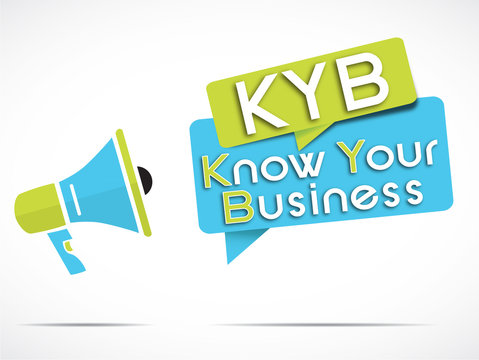
Know Your Business (KYB) is a validation method that verifies a corporation’s legal standing and anti-money laundering and other legislation adherence. A compliant institution, like a bank or other financial firm, uses the KYC procedure to defend its assets and identify whether it is involved in business with a legitimate or a shell organization.
Understanding what goes on behind the scenes of a company guarantees its legitimacy and protects it against unethical or dishonest business practices. It also protects against financial crimes including money laundering, and embezzlement. According to Shufti Pro news, money laundering wastes 3-5% of the world’s GDP each year, which amounts to 2 trillion USD
Furthermore, as a compliance measure, KYB processes contain Ultimate Beneficial Ownership (or UBO). Introducing UBO helps you to see who benefits straight from the firm’s earnings. If a company fails to know KYB processes, it risks losing its company image, reputation, and earnings and facing legal fines for not complying with the regulations. As per Shufti Pro Funding, the compliance budget each year cost $5.47 million worldwide.
How to Differentiate between KYB and KYC?
Know Your Business (KYB) must not be mistaken with Know Your Customer (KYC) despite their resemblance. KYC is also a validation criterion used to validate clients’ identities and supervise their portfolio and history in the financial and other regulatory businesses.
The pivotal dissimilarity between the two is the type of client they are interacting with. While both entail verification procedures, KYC is for people and KYB is for the companies.
Know Your Business Rules and Regulations
KYB is frequently thought of as an outgrowth of KYC. The explanation for this is that KYB is a relatively new rule. While KYC processes have been in place for a long time, businesses have not been exposed to the same scrutiny, allowing bad actors to use organizations for illegal purposes.
In Europe, authorities addressed the legislative gap in the 4th AML Directive, which discussed the legal standards and was issued in 2017. Customer Due Diligence standards for the finance sector were amended a year after the US Financial Crimes Enforcement Network (FinCEN) introduced KYB regulations.
KYB Applicable Companies
KYB is required not just by banks. The following organizations, corporations, and people are susceptible to the legislation under the 5th AML directive:
- Financial institutions
- Monetary institutions
- Digital Banking
- Auditors
- Asset Managers
- Tax Consultants
- Outside accountants
- Blockchain and crypto exchanges
- Notaries
- Estate brokers
- Trusts
- Gambling Businesses
Businesses in deregulated industries undertake KYB inspections even though it is not mandated by law. The rationale for this is that statutory inspections of the business partners may help safeguard a company’s credibility and prevent fraud and asset misappropriation.
How Can Businesses Comply WIth KYB Regulations
Around the globe, KYB rules normally require regulated businesses to assess the amount of risk involved with their commercial ties. As a consequence, businesses should create an AML plan that includes:
Due Diligence
Unline client due diligence, which is determining if a consumer is who they claim they are, corporate due diligence entails determining the company’s Ultimate Beneficial Owner (UBO). It is possible to calculate the volume of the risk by determining a company’s UBO. If UBO offers a higher risk, organizations may need to conduct further due diligence before pursuing commercial ties or instituting continual monitoring.
Readmore: where are Samsung phones made
PEP Monitoring
A regulated company should do due diligence on commercial relationships to ensure that no politically exposed individuals are involved. Because of the possibility of political fraud, companies with positive PEP standing might represent a higher degree of risk.
Sanctions Screening
A company’s reputation may be judged by keeping track of negative press coverage. The continuing motoring provides timely notifications whenever the company’s reputation is harmed in the media.
Transaction tracking:
Analyzing a company’s transaction behavior might reveal crucial data related to its risk profile. Large amounts of money transfers to high-risk nations, for example, might signal suspected money laundering.
Wrapping Up
Verification of corporate entities necessitates a large amount of information, which can be time-consuming if done manually. This raises the likelihood of human mistakes and lengthens the procedure. As a consequence, there are various computerized KYB solutions out there. They enable human workers to use digital technologies to bypass the time-consuming onboarding procedure, which can now be completed in seconds. Know Your Business automated solutions mitigate the risk that can damage the reputation of the company.
Electronic identification validation uses public documents and private records to instantly verify a person’s identity. This may be compared to the firm’s employee list to see whether any information is incorrect.




